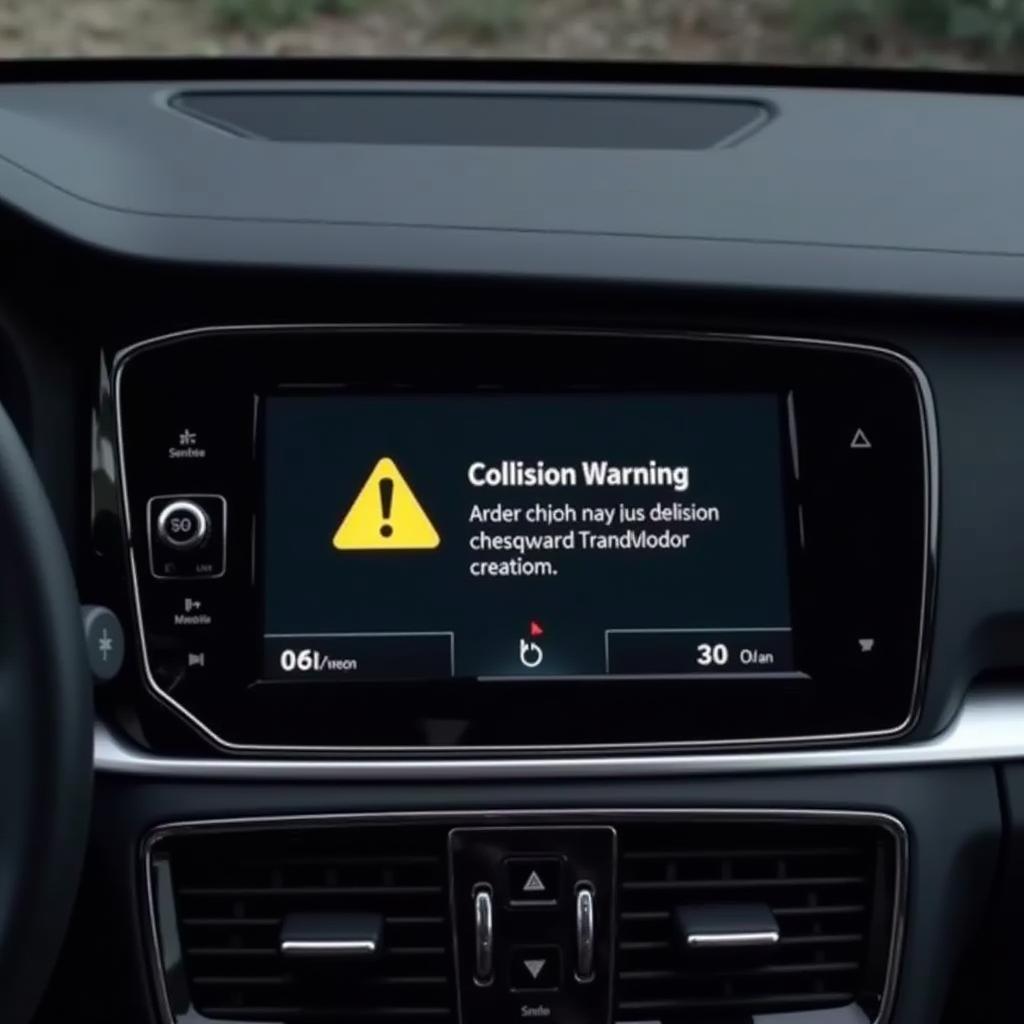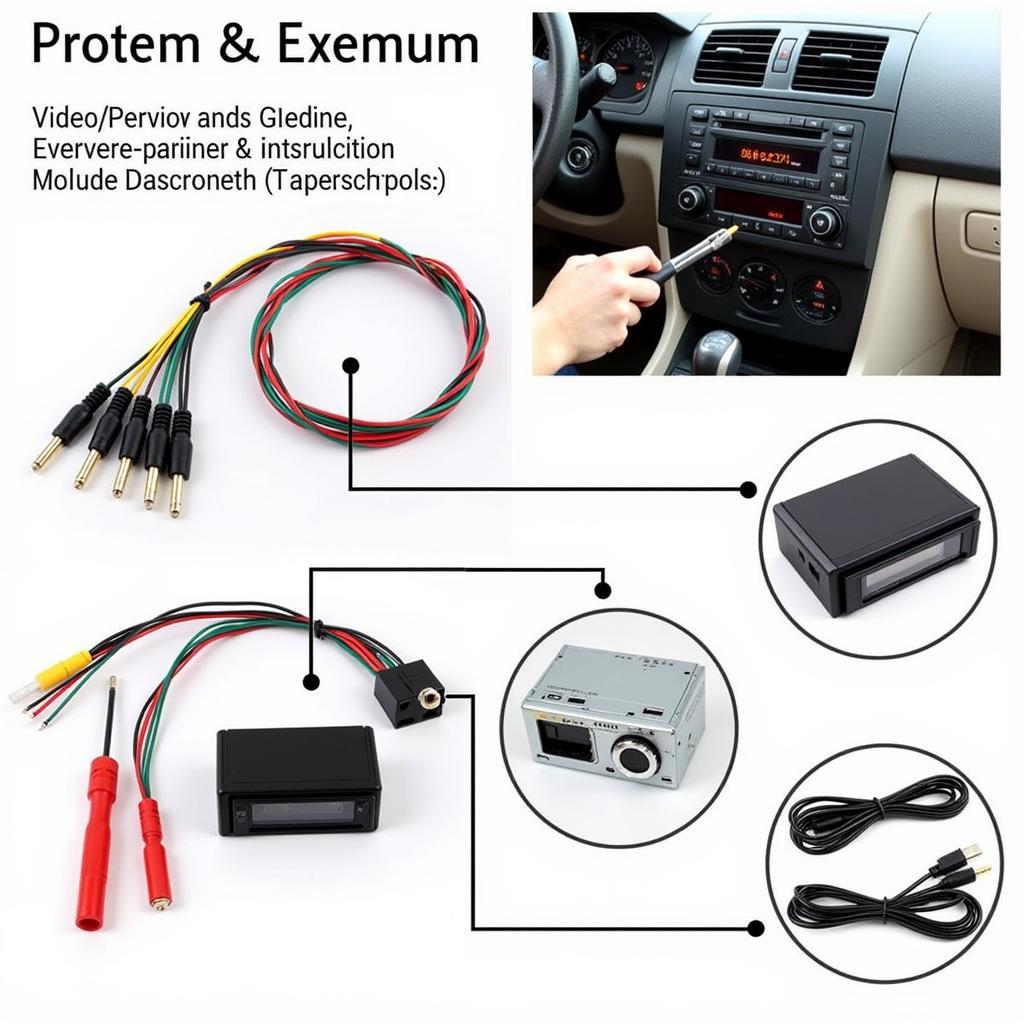The brake system warning light on your 2005 Toyota Prius is a crucial safety feature that shouldn’t be ignored. This light illuminates when the car’s onboard computer detects an issue within the braking system, which could range from low brake fluid to a serious malfunction. Understanding the potential causes and knowing how to address them is vital for your safety and the longevity of your Prius.
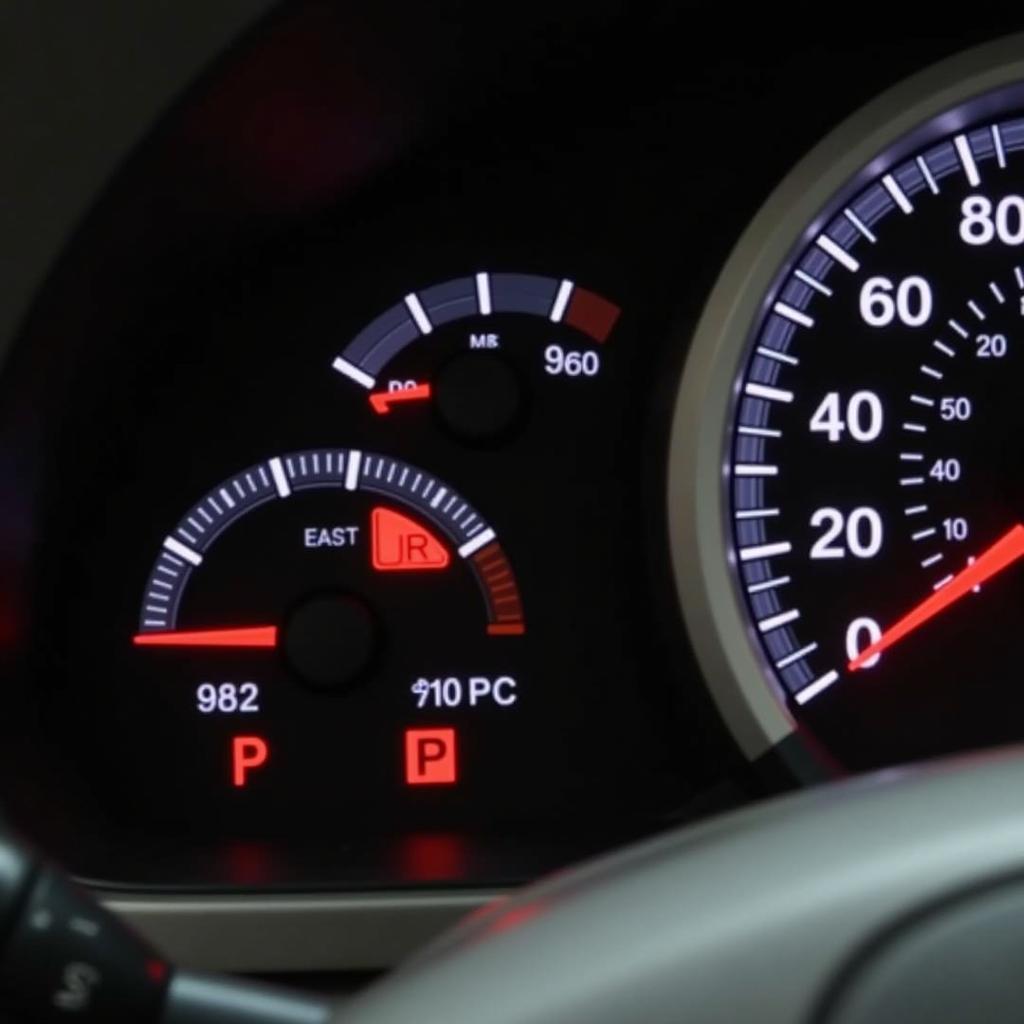 2005 Prius dashboard with illuminated brake system warning light
2005 Prius dashboard with illuminated brake system warning light
Common Causes of the 2005 Prius Brake System Warning Light
While a mechanic’s diagnosis is always recommended for a definitive answer, here are some of the most common reasons why your 2005 Prius might display the brake system warning light:
1. Low Brake Fluid: This is often the primary culprit. Brake fluid naturally depletes over time, and a low level can significantly impact braking performance.
2. Worn Brake Pads: Brake pads are designed to wear down with use. When they become too thin, the brake system warning light might activate as a safety precaution.
3. Brake Fluid Leak: A leak in your brake lines or other components can lead to a sudden drop in brake fluid pressure, triggering the warning light.
4. Faulty Brake Sensor: Sensors within the brake system monitor various components. A malfunctioning sensor might incorrectly signal a problem, illuminating the warning light.
5. ABS Issue: While less common, an issue with the Anti-lock Braking System (ABS) can also trigger the brake system warning light.
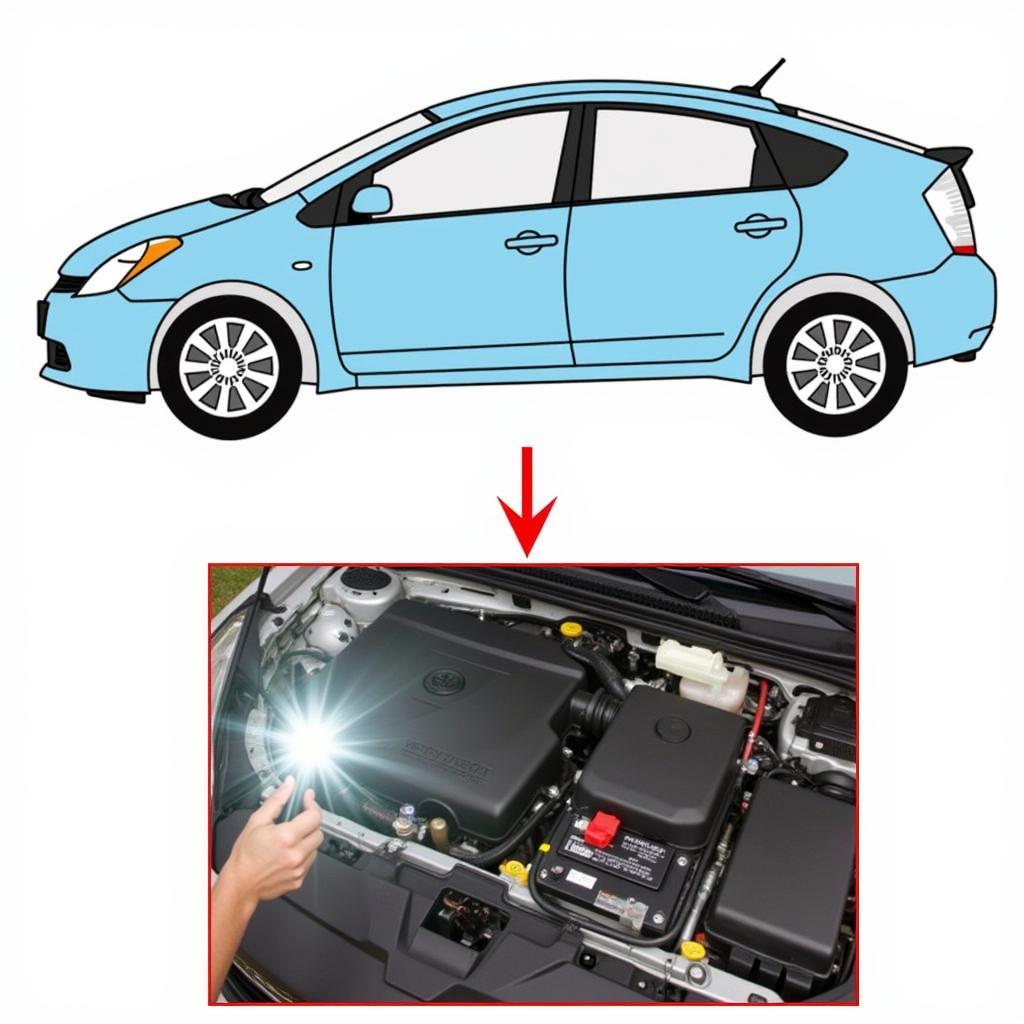 Checking the brake fluid level in a 2005 Toyota Prius
Checking the brake fluid level in a 2005 Toyota Prius
Troubleshooting the Brake System Warning Light
Before rushing to a mechanic, there are a few checks you can perform yourself:
-
Check Your Brake Fluid: Locate the brake fluid reservoir under the hood (refer to your owner’s manual for the exact location) and visually inspect the fluid level. If it’s low, adding brake fluid might temporarily resolve the issue.
-
Inspect Your Brake Pads: If possible, take a look at your brake pads through the wheels. Thin pads (less than 1/4 inch of friction material) should be replaced promptly.
-
Look for Leaks: Carefully examine the area around your wheels and under your car for any signs of brake fluid leaks. Brake fluid is typically clear or slightly yellowish.
-
Avoid Driving: If the warning light is on, it’s crucial to avoid driving as much as possible. Driving with a compromised braking system can be extremely dangerous.
brake system warning light toyota prius
When to Seek Professional Help
If the warning light remains on even after adding brake fluid or if you suspect a more serious issue like a leak or sensor problem, it’s essential to seek professional help immediately. Delaying repairs can lead to further damage and compromise your safety.
“Ignoring a brake system warning light is like ignoring a flashing ‘danger’ sign,” says John Smith, a seasoned automotive technician specializing in Toyota hybrids. “It’s crucial to address the issue promptly to prevent potential accidents and costly repairs.”
Remote Diagnostics and Software Solutions
In some cases, especially if the issue is related to the car’s electronics or sensors, remote diagnostics and software solutions can be a convenient and efficient way to diagnose and even fix the problem. Qualified technicians can remotely access your car’s computer system, analyze error codes, and potentially even reprogram faulty modules without you needing to visit a repair shop.
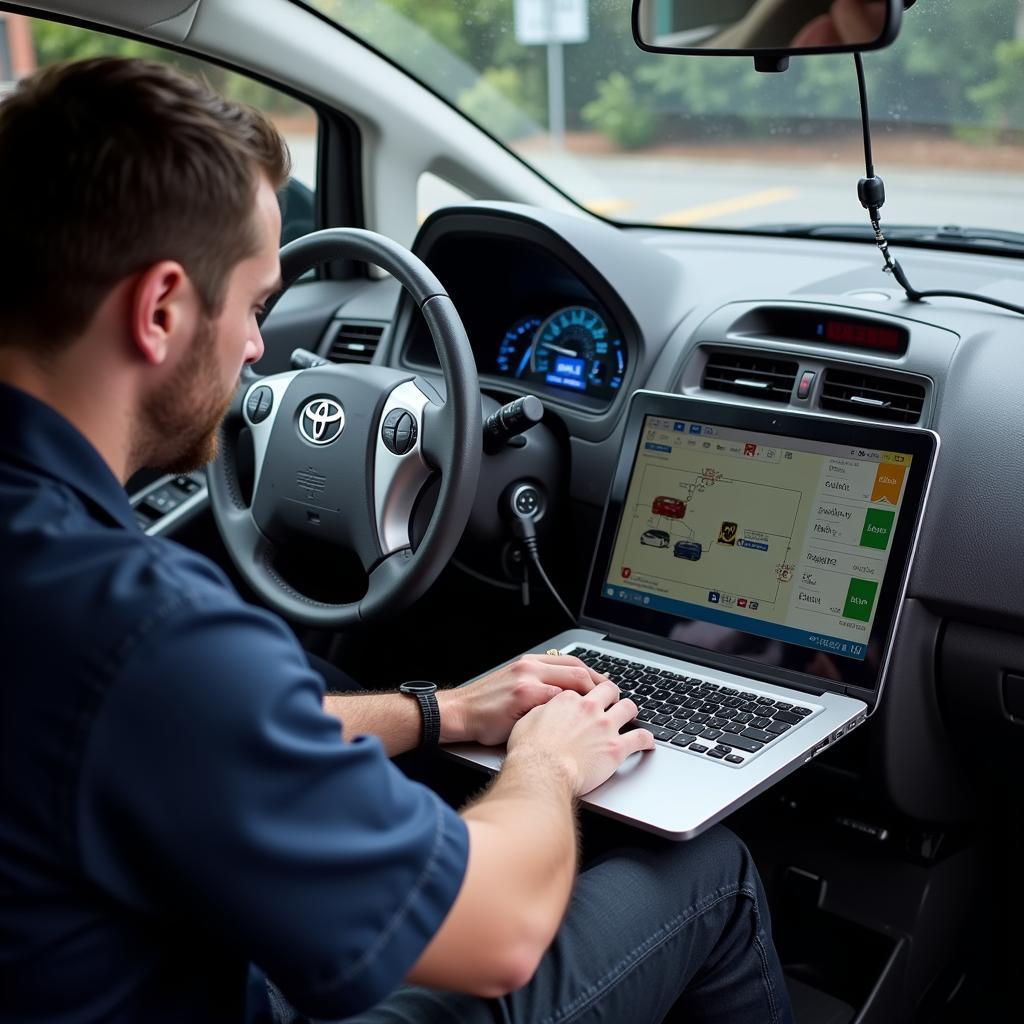 Technician performing remote diagnostics on a 2005 Toyota Prius using a laptop
Technician performing remote diagnostics on a 2005 Toyota Prius using a laptop
trailer brake system warning 2014 gmc sierra
Maintaining Your Prius’s Brake System
Regular maintenance is key to preventing brake system issues and ensuring optimal performance. Here are some preventive measures:
-
Regular Brake Fluid Flushes: Toyota recommends flushing your Prius’s brake fluid every two years or 30,000 miles to prevent corrosion and maintain optimal performance.
-
Timely Brake Pad Replacement: Have your brake pads inspected regularly and replace them as needed. Don’t wait until they wear down completely.
-
Annual Brake System Inspections: Ask your mechanic to inspect your entire brake system at least once a year to catch any potential issues early on.
By proactively addressing your 2005 Prius’s brake system needs, you can ensure its safety, reliability, and longevity. Remember, when it comes to brakes, erring on the side of caution is always the safest approach.

